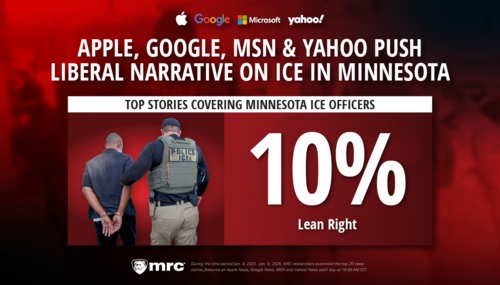On the PBS NewsHour weekly pundit roundup on Friday, they reviewed the media's assault on Mitt Romney with the usual NewsHour balance: liberal Washington Post columnist (and former reporter) Ruth Marcus gave Obama an A and Romney an F, and said Romney's remarks were "really disgraceful" and his "doubling down was just unconscionable."
And the alleged conservative, David Brooks agreed, with less passion about Romney's argument: "it was not good." He also joked that Romney's campaign is over. He knows how to please the bosses at PBS. Marcus took the first shot:
RUTH MARCUS: I wouldn't give the president absolutely 100 percent marks. There were some issues with the handling of the tweet from the embassy and his remarks about whether Egypt was an ally that needed to be cleaned up. But by comparison, if you are grading on a curve, he's getting a solid A. And I am just flunking Mitt Romney. I'm in back-to-school mode, so I'm giving grades these days.
I know that the NewsHour is a civil place, but I'm going to use an uncivil word. But it is an uncivil word that Mitt Romney used about the president and the Obama administration.
I thought his comments were really disgraceful. He mischaracterized what was said. He got the timeline wrong. He accused the president of his first reaction to an attack on the embassy and the consulate being to apologize for America, rather than to condemn the attack.
And I thought his Tuesday night comments were amateurish and way too quick. His Wednesday morning doubling down was just unconscionable. Other than that, I really liked what he did.
Anchor Judy Woodruff then turned to Brooks if the word "disgraceful" was too strong:
BROOKS: I thought they were not good. How about that? Not good. And I would say that for a couple reasons, some of which Ruth alluded to. First, the first news out of any international crisis is always -- the first news is always kind of misleading, so wait a beat. And I think experienced hands would have waited a beat, rather than have that first Romney thing. Second, when bad things are happening abroad, the American people want to see stability.
RUTH MARCUS: And they rally around the commander in chief.
DAVID BROOKS: And they do. And, so, you don't know who is dying or what is happening. Just show some stability. When the helicopters went down under Jimmy Carter, Ronald Reagan said, OK, I'm not going to use this politically. That was the right instinct.
Third -- and this, I think, is deeply revealing of Romney -- he is just not an ideological person. So, what principle is he standing for in this fight? The principle that thou shall not apologize. That is not a principle. That is a tactic. That is a management theory of how to manage power. And so trying to be an aggressive ideological person, but while not really being an ideological person, he has an ideological fit over management theory.
The conversation began with Woodruff summarzing the latest polls in swing states showing Obama ahead: "So, David, recognizing that these polls are just a snapshot, the elections weeks away, what do you make of that?" Brooks joked: "I think Romney's -- his concession speech should be this evening at some point."
Brooks also expressed his distaste with Romney's attacks on his usual Friday-roundup appearance with E.J. Dionne on NPR's All Things Considered, but at least he found a moment to grant there was some anti-Romney media bias:
AUDIE CORNISH: At the same time, we've been hearing conservative commentators out there saying that so far, the offense seems to be of the pundit class, that, you know, Mitt Romney has been out there trying to make his case and that he's not getting a chance to do it.
BROOKS: I do think it's been vastly overblown, and I do think there is a bias in favor of Mitt Romney - in favor of Barack Obama and against Mitt Romney. Nonetheless, that doesn't sort of excuse what we've been through.
Brooks thought neither candidate had been asked about how they view the "Arab Spring" now. Romney could have been asked that at his press conference -- but the reporters strategized to all ask him the same question over and over.




